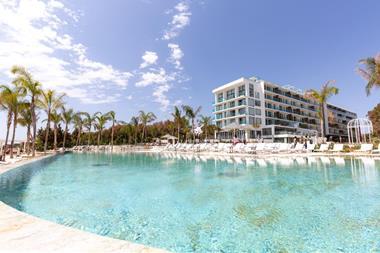Taiwan insurance companies are pushing regulators to relax restrictions on investments in overseas real estate.
Insurers were allowed to invest in offshore real estate for the first time in 2013, but they are now arguing in favour of lifting the cap on overseas real estate investments.
According to a draft proposal, Taiwanese regulators have in principle decided to increase the existing cap from 10% to 30% of net worth. But insurers are likely to find the new limit unsatisfactory given their appetite for overseas property.
Taiwan’s second-largest Fubon Insurance is understood to be fast approaching its cap, following its acquisition last November of real estate in Brussels for €220m from AG Real Estate.
It is also close to buying its fourth property in London. Once finalised, Fubon’s overseas investment is likely to surpass the 30% cap, according to sources.
At the end of last year, the country’s largest Cathay Life had invested as much as NT$52.6bn (€1.41bn), leaving it with a further NT$50bn in available capital.
The firm has already submitted application for roughly NT$20bn more to be deployed in Japanese and Chinese real estate, although it is yet to close any deals.
At least one insurer has suggested that working capital – rather than net worth – should be considered when applying limits to offshore real estate investment. A proposed cap at between 2% to 5% of working capital would allow further leeway.
Local press reported that Lee Mang-chih, director general of Bureau of Insurance, said that the proposal to limit overseas real estate to 30% of net worth had come from the insurers themselves and it should sufficiently allow direct acquisitions without having to go through special purpose vehicles.
It is understood that, after large-scale investment in European real estate by Taiwan’s largest insurance firms, authorities are seeking ways of regulating the outflow of capital into overseas assets.
“It is quite clear regulators are concerned about the outflow of capital,” said one Taipei-based source. “They would rather prefer they invested domestically.”
Meanwhile, Taiwan’s new chairman of the Financial Supervisory Commission, Jennifer Wang, has identified setting up a new regulatory framework for overseas property investment by insurers as a key policy priority of her new term.
An initial announcement of the draft proposal is expected soon and insurers will have two weeks to respond to the new rule.
Regulators are still considering if applications will be considered on a case-by-case basis, or the investment limit be capped at 30% of net worth.
Since the government lifted the ban on investment in offshore property by insurers in 2013, Taiwanese companies have been one of the biggest investors in overseas property, pouring billions into new buildings, most notably in London.
After moves by Cathay and Fubon, the island’s third largest insurer Shin Kong Life also announced in December it had acquired an office building in London for £136m (€176m).
The firm is also awaiting approval from Japanese authorities to buy real estate in Tokyo through a special purpose vehicle. Such arrangements are seen as helping companies bypass the offshore investment ceiling, which is currently based on parent company’s net worth.
Increasingly, the insurers have been diversifying into second-tier European cities such as Brussels, in the case of Fubon Life, and have also been seeking opportunities in Japan and China, as has been in the case of Cathay and Shin Kong, respectively.
While regulators seem to be receptive to views from insurers, they are also concerned about the risks insurers are taking, sources said.
Since offshore property investments are typically large in scale, it seems more appropriate if capital outflow is modulated and approved based on insurers’ net worth, Lee was quoted as saying.









